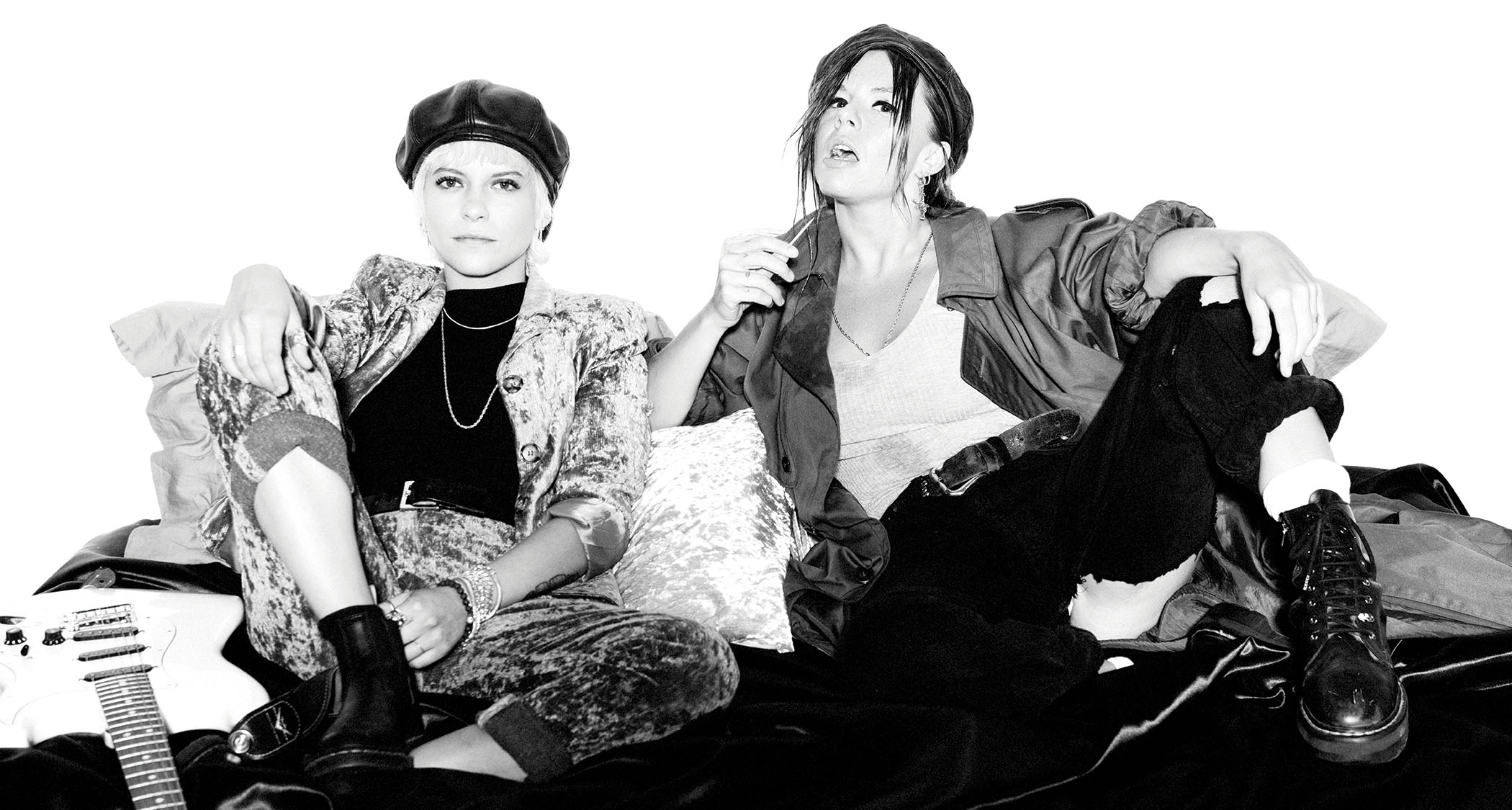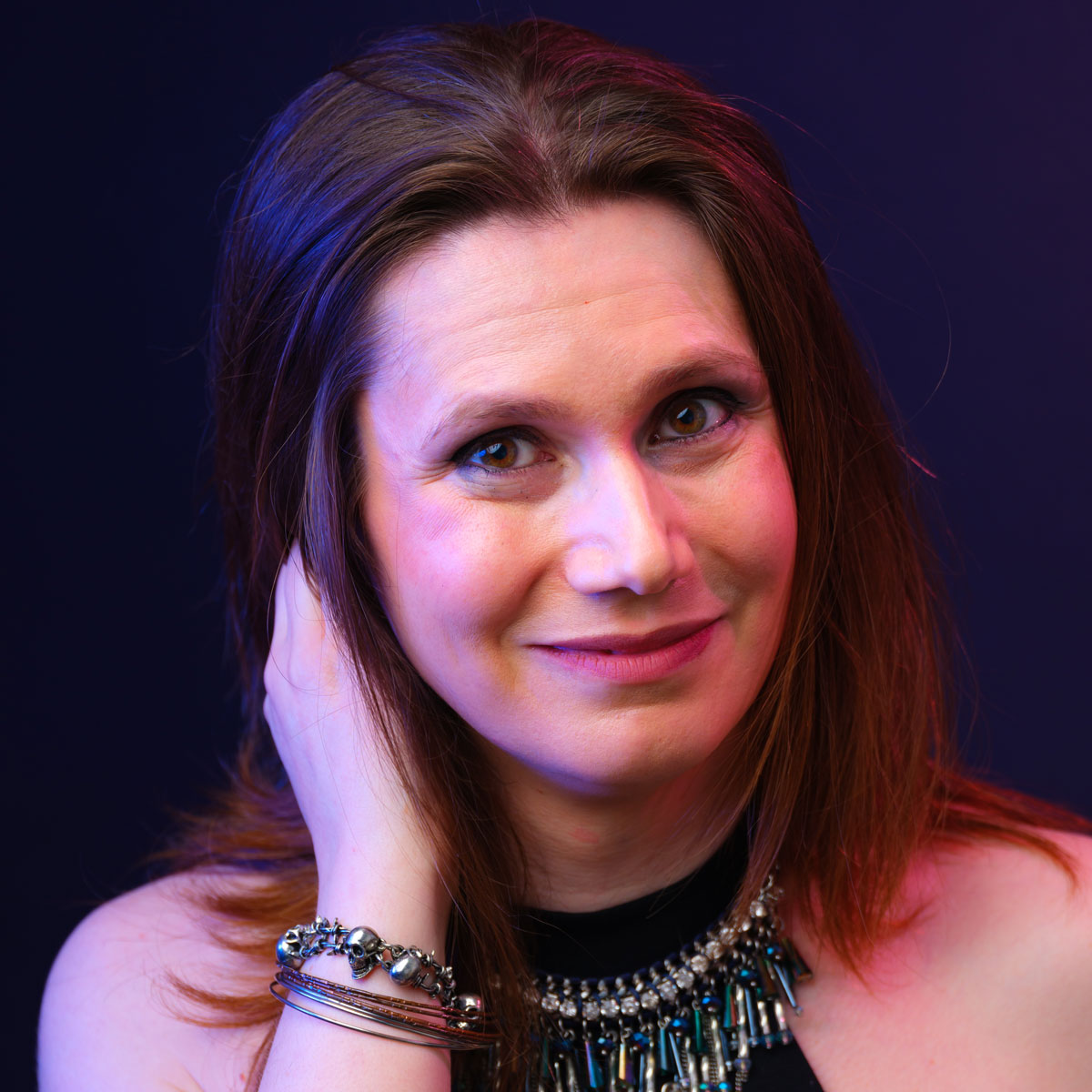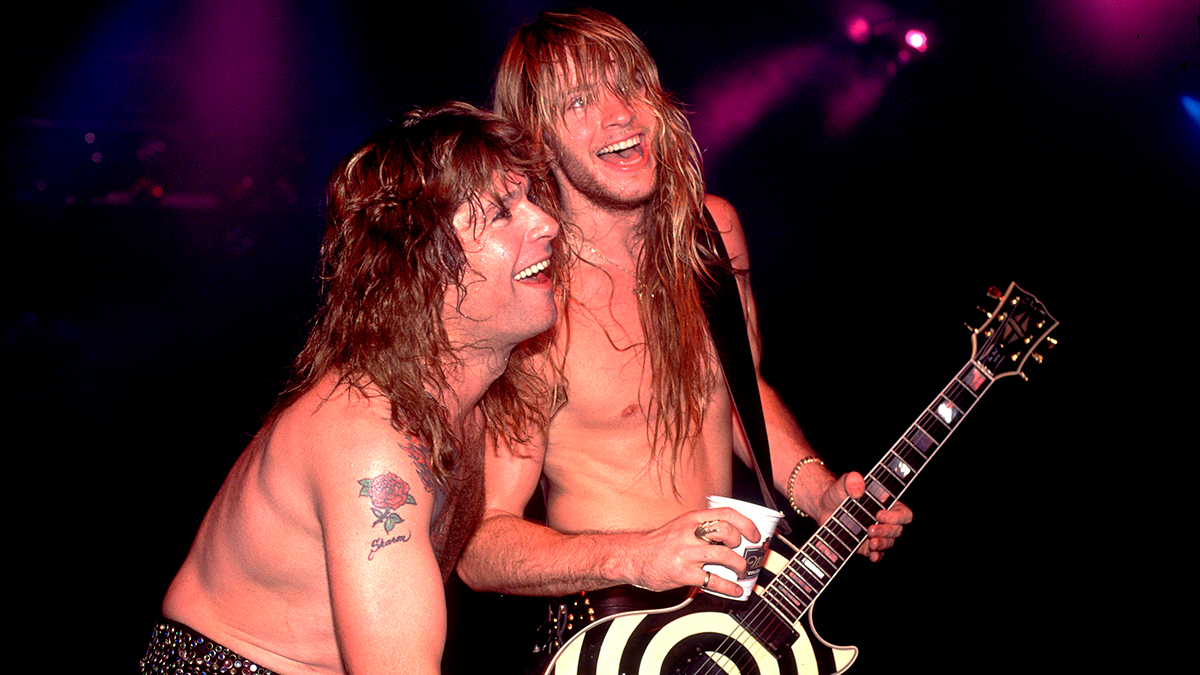“I don’t normally enjoy co-writes, but when Billy Corgan says he wants to work on your stuff, you say yes”: Rosie Bones on her guitar chemistry with Carmen Vandenberg, Corgan collabs – and why Bones UK doesn’t need a bassist
Augmenting the rock with electronic elements, Bones UK are dragging it into the future, but as frontwoman Rosie explains, they have one foot in the past, with an old-school blues cat playing lead

At the heart of Bones UK is a paradox: the music is futuristic while also backward-looking. “We always want to do something people haven’t heard before,” explains Carmen Vandenberg’s co-conspirator, Rosie Bones.
“We never wanted to sound like another rock band. We often said that we sound like ‘future rock’ – it’s rock ’n’ roll from the future, so having that kind of electronic element is really important to us.
“At the same time, we wanted this record to feel old-school because Carmen’s an old-school kind of girl. She loves the old guitar players. She’s a blues head. She’s like a 60-year-old man that lives in a little blonde girl’s body! So that combination is what we like doing as a band: the future, but kind of nostalgic.”
The second Bones UK album took longer than anyone would have liked, but Rosie is upbeat about it. “It was as much of a blessing as it was a curse,” she says philosophically. “It meant that we had a lot more songs than we needed. We had the opportunity to handpick the best ones.” It’s part of what makes Soft such a consistently strong record.
Another part was their outstanding choice of collaborators. Their main producer, Filippo Cimatti, produced their debut album and Jeff Beck’s Loud Hailer.
“Filippo is like a family member,” Rosie enthuses. But two other guests took the album up a notch. “We just wanted to try out some other stuff, so we worked with Michael Shuman from Queens Of The Stone Age, who’s incredible. Mike’s got another project called Glu, which is just my favourite thing in the world. I’m a massive Queens Of The Stone Age fan and he’s a good friend, so it felt like a very natural collaboration.
We worked with Michael Shuman from Queens Of The Stone Age, who’s incredible. He’s a good friend, so it felt like a very natural collaboration.
“I don’t normally enjoy co-writes. The other person that we did it with on this record, because we couldn’t say no to the experience, was Billy Corgan. Obviously, when Billy Corgan says he wants to work on your stuff you say yes. He reached out saying he was a fan and then we went to his house and did some writing. So there’s two tracks we worked on with him, which is Us and Blood. That was ridiculous!
All the latest guitar news, interviews, lessons, reviews, deals and more, direct to your inbox!
“We’ve never done co-writes before. It has to feel like we have a relationship with the person. I’m not into just going into a room with a stranger. Those two people gave this project so much worth. We had a really good rapport with them, and what they brought to it stepped it up. It was such an honour to be part of it. You could definitely hear the Queens sound.”
Rubbing shoulders with rock royalty has not gone to her head, though, and Rosie is self-effacing about her guitar playing.
“Carmen plays anything that’s complicated!” she claims. “I’m very rhythmic. My first instrument was drums. I quite enjoy this as a songwriter: I can’t do very much, but the restrictions that I have mean that I find rhythmic things that maybe Carmen wouldn’t.
I broke the headstock off my Fender Powercaster at the last show, so we had to get that fixed, because they’ve discontinued them!
“She can be like, ‘Oh, a minor seven!’ I’m like, ‘This is all I can play!’ People often think that I play bass. I really enjoy that almost Bootsy Collins-style rhythmic funk. I wrote the riff in Knee Deep. It’s kind of the ballady one, and that came from me just supporting what I was doing vocally.”
Rosie’s weapon of choice is Fender’s Alternate Reality Powercaster, which has a body similar to a Jazzmaster, P-90 neck and bridge humbucking pickups, and a Gibson-style tune-o-matic bridge.
“It’s amazing,” she enthuses. “I broke the headstock off at the last show, so we had to get that fixed, because they’ve discontinued them! But it’s the perfect balance of functionality and also having a bit of a vibe.”
The Powercaster goes into a Blackstar Artist 30 amp, by way of a couple of pedals. “My pedal set-up is unspeakably simple,” she shrugs. “It’s just a tuner, and then I have a distortion and a boost. The distortion changes because Carmen picks out an amazing distortion, and we try new things.” At the time of writing Rosie was using the Blackstar Dept 10 Dual Drive for both drive and boost.
That rig has powered an album that is more live-sounding than its predecessor. “The big thing was to make it a bit more gritty, a bit more London, and have a bit more live energy, because we know how much people enjoy our live show,” Rosie says.
We know bass players exist. They’re wonderful. But it’s not something that we want
“We really wanted to translate some of that energy into this new record, where the first record was a bit more electronic. It feels cohesive because that work was done at the front end. Then the songwriting just kind of flows into that much easier, I find.”
Although this record is more live-sounding, it is better not to ask when the band will be getting a bassist.
“Every f*cking show we do, a bass player comes up to us afterwards and goes, ‘Why don’t you guys have a bass player?’ as though we forgot bass players exist!” laughs an exasperated Rosie. “We know they exist. They’re wonderful. But it’s not something that we want because we’re building this sonic world of electronics – that almost dance feel.”
Live, their bass parts are on a backing track. “We enjoy the track element because we’ve got that solid bed to play on and we like the electronic feel.”
Rosie says that the chemistry between herself and Carmen is what makes the band work.
“The whole thing with us, live, is to free Carmen up to shine as bright as she can, and to free me up to shine as bright as I can,” she reflects. “That involves me not playing very complicated guitar parts. It’s giving Carmen the backbone of me just rhythmically doing stuff for her to stretch out.
“We’ve always said it’s not a lead vocalist and a guitarist – her guitar is a lead vocal, too. It’s not like I’m at the front and then Carmen’s behind. We’re always at the front together.”
Jenna writes for Total Guitar and Guitar World, and is the former classic rock columnist for Guitar Techniques. She studied with Guthrie Govan at BIMM, and has taught guitar for 15 years. She's toured in 10 countries and played on a Top 10 album (in Sweden).




